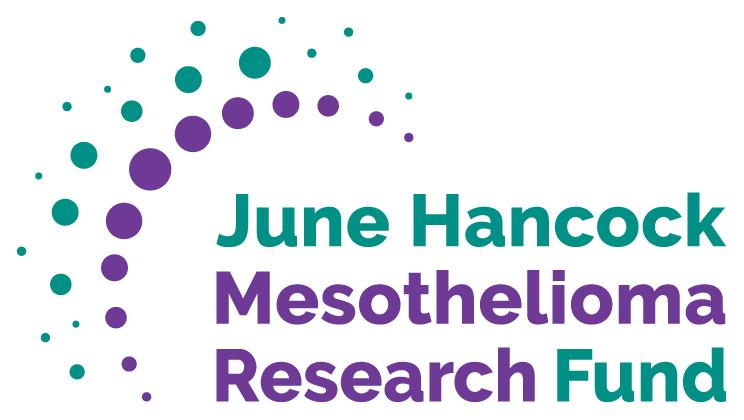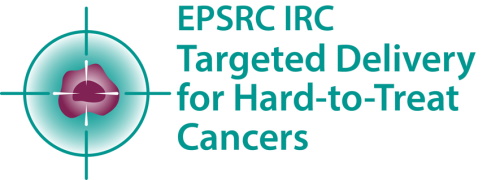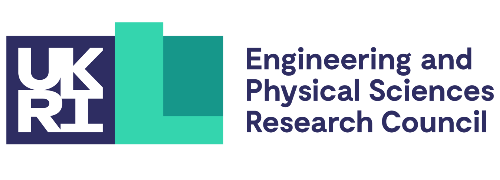
Submitted by L. Millard on Fri, 04/11/2022 - 12:53
Members of the IRC team took part in a June Hancock Mesothelioma Research Fund Meet the Researchers event that brought together mesothelioma patients and their families with IRC researchers and clinicians.
Meet the Researchers events are an opportunity for researchers and academics to engage with patients and practitioners. Non-researchers can gain insight into the aims, objectives, challenges, and opportunities of current research; researchers can hear patients’ and practitioners’ priorities for research. These events are designed to promote discussion and allow questions to be asked in a relaxed and informal way. The aim is to break down the barriers between researchers and patients and enable conversations that will lead to meaningful engagement and a better understanding of research.
The two-hour event was opened by Dr Kate Hill, a founding Trustee and pro bono Manager of the research activity for the June Hancock Mesothelioma Research Fund (JHMRF), a campaigning charity that sponsors and promotes vital research into the causes and treatment of mesothelioma. The online format allowed the charity to open the Meet the Researchers event – previously held in-person – to a wider audience, and participants attended from across the UK and internationally. Everyone was encouraged to ask questions throughout the event and the emerging conversations between researchers, patients and practitioners were engaging and informative.
Meet the Researchers events are an opportunity for researchers and academics to engage with patients and practitioners. Non-researchers can gain insight into the aims, objectives, challenges, and opportunities of current research; researchers can hear patients’ and practitioners’ priorities for research. These events are designed to promote discussion and allow questions to be asked in a relaxed and informal way. The aim is to break down the barriers between researchers and patients and enable conversations that will lead to meaningful engagement and a better understanding of research Dr Kate Hill, June Hancock Mesothelioma Research Fund
Claire McGlynn, Programme Manager of the IRC, introduced the work of the interdisciplinary initiative that is developing new technologies for targeted delivery of treatments for three hard-to-treat cancers – mesothelioma, glioblastoma and pancreatic cancer. A short animation ‘Why focus on drug delivery technologies in the fight against cancer?’ was shown to explain the approach of the IRC – a partnership of scientists, engineers and clinicians with a shared ambition to improve treatments for cancers which do not respond well to existing therapies. The technologies under development include molecular ‘delivery vehicles’ which can be loaded with drug molecules to deliver drugs more effectively to the tumour, and implantable devices and injectable gels that can deliver the drug directly to the tumour site.
Professor Stefan Marciniak, Professor of Respiratory Science and Honorary Consultant Respiratory Physician at Addenbrooke’s and Royal Papworth Hospitals, and IRC clinical lead for mesothelioma, gave an overview of the IRC’s mesothelioma research strategy and acknowledged the crucial role of the JHMRC charity in supporting early research studies into nanotechnology and mesothelioma which helped to secure the EPSRC funding for the IRC programme. He also talked about the historical lack of treatment options available to mesothelioma patients recently improved by advancements that have seen step changes in treatments; experimental trials in the past 24 months using two combinations of immunotherapies have been shown to be effective and are now licensed for use within the NHS. Professor Marciniak highlighted the interdisciplinary structure of the IRC that creates a ‘technology push and clinical pull’ dynamic to accelerate the journey from laboratory to clinic.
Many attendees asked questions throughout the event, and some shared their own experience as mesothelioma patients. Three presentations from IRC researchers showcased current early-stage research in targeted delivery to create a narrative explaining the development journey of one of the IRC technologies.
Xiewen Liu, who is part of the Adsorption & Advanced materials group at the University of Cambridge run by IRC Investigator Professor David Fairen-Jimenez, presented his PhD work developing metal-organic-frameworks (MOFs) for mesothelioma therapy. He explained the challenges to current treatments for mesothelioma and how the porous MOFs can be loaded with combinations of drugs to better target the cancer and deliver sustained release. This approach could potentially reduce time-consuming sequential chemotherapy treatments for patients, alleviate the side effects of systemic therapies and improve the efficiency of the drugs delivered to treat mesothelioma.
Dr Giulia Emanuelli, Research Associate at the Cambridge Institute of Medical Research and the Marciniak Lab, continued the narrative in relation to the in vitro (laboratory) study of cells to learn more about the behaviour of the different types of mesothelioma to the targeted delivery of drugs. Dr Emanuelli acknowledged the importance of working with cell lines donated by patients with mesothelioma, made available from Mesobank, a collection of tissue, cells and blood samples from pleural mesothelioma patients used for the study of the disease. Laboratory experiments enable researchers to identify how effective the drug-loaded MOFs are against the cancer cells, which combination and quantity of drugs is most effective and the optimum time for sustained delivery.
Dr Sarah Barnett, postdoctoral researcher at the Institute of Systems, Molecular and Integrative Biology at the University of Liverpool added a third dimension to the research story presenting her studies that use the mesothelioma cells to grow a tumour inside a chicken egg. Creating these 3-D models enables scientists to work with more life-like tumours and tumour micro-environments that better mirror mesothelioma. The drug-loaded MOF can be introduced to the tumour and studied to gain further insights into the safety and efficiency of the drug delivery technology against the cancer.
Explaining the stages of the research pipeline – discovery, development and delivery – Dr Barnett referred to the long process (can be 10-20 years) of progressing an idea from concept to the clinic, the very low (1%) numbers that reach clinical trial and the need for a large amount of discovery research to ensure more new treatments reach the patient.
• For more details about the June Hancock Mesothelioma Research Fund see the website at www.junehancockfund.org


